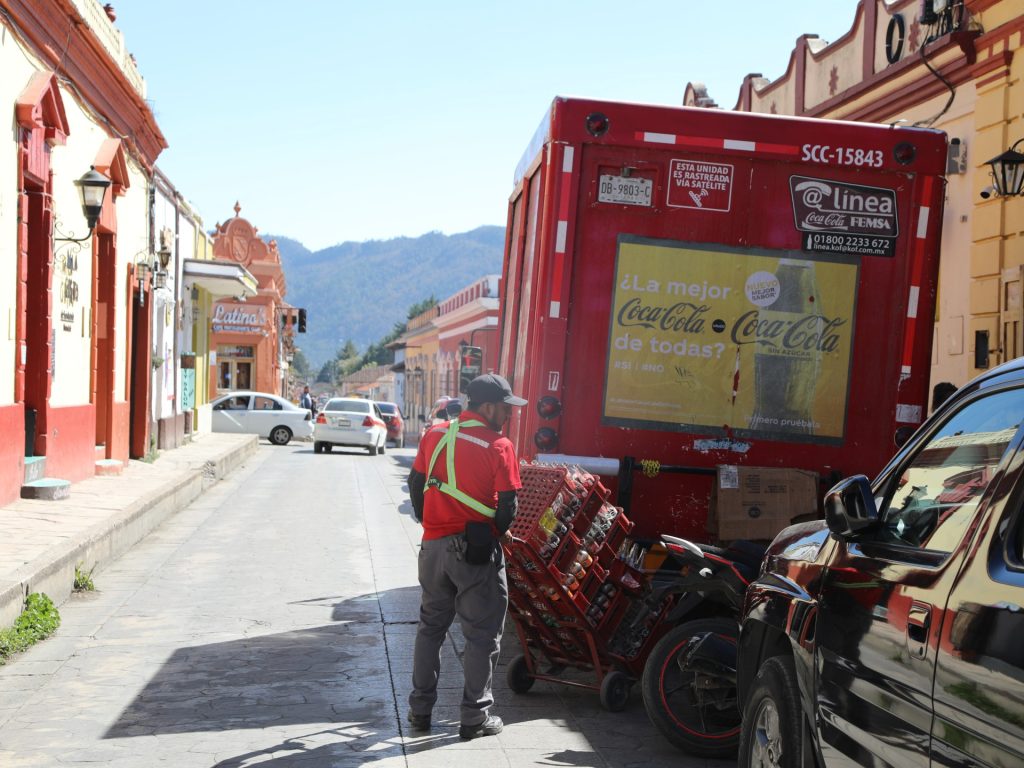The alarming reality of water scarcity in San Cristóbal de las Casas, Mexico, is intricately linked to the operations of Coca-Cola Femsa, the largest bottler of Coca-Cola products in the world. A 2017 report revealed that Femsa secures water permits for a mere 2,600 pesos, or $155, a sum deemed negligible compared to the immense profits generated from these resources. This stark contrast raises serious concerns about the fairness and transparency of the permit-granting process, especially given the company’s pervasive influence within Mexico’s political and economic landscape. The fact that former Mexican president Vicente Fox once headed Coca-Cola Femsa further fuels suspicions of undue influence and preferential treatment. Despite repeated requests for comment, Mexico’s National Water Commission (CONAGUA) has remained silent on the criticisms surrounding these permits, their duration, and the extent of Coca-Cola’s water usage across the country. This lack of transparency only exacerbates public distrust and hinders efforts to address the growing water crisis.
Coca-Cola’s dominance in the Mexican beverage market, boasting a 70% share, is undeniable. Femsa’s extensive network of over 20,000 convenience stores nationwide, coupled with its practice of providing refrigerators to smaller shops, ensures its products are ubiquitously available. This pervasive presence has been likened to the distribution strategies employed by drug cartels, creating a sense of inescapability for consumers. Critics argue that this aggressive market penetration, combined with the company’s questionable water practices, further jeopardizes the already precarious water security of communities like San Cristóbal. Despite allegations of contributing to water shortages, Femsa has remained unresponsive to inquiries regarding its business practices and its plans to mitigate its environmental impact. While Coca-Cola Mexico acknowledges the water challenges in San Cristóbal and claims to be working with local communities and NGOs, the lack of specific details and quantifiable results casts doubt on the effectiveness of these initiatives.
The water crisis in San Cristóbal is a complex issue with multiple contributing factors, including inadequate infrastructure and rapid urbanization, which strain existing water resources. While government investment in water infrastructure is crucial, the role of large corporations like Coca-Cola Femsa cannot be ignored. The company’s significant water consumption, coupled with allegations of exploiting lax regulations and wielding political influence, raises serious ethical questions. The stark contrast between the minimal cost of water permits and the company’s substantial profits further underscores the need for greater scrutiny and accountability. The lack of transparency from both the company and CONAGUA hinders efforts to comprehensively assess the impact of Coca-Cola’s operations on local water resources and develop effective solutions.
The pervasive presence of Coca-Cola products in San Cristóbal, facilitated by Femsa’s extensive distribution network, creates a challenging environment for promoting responsible water consumption. For many residents, particularly those in marginalized communities, Coca-Cola has become an ingrained part of daily life, often perceived as the only readily available beverage option. This deeply entrenched consumer behavior, coupled with limited access to alternative drinks and a lack of awareness about the environmental consequences of Coca-Cola’s production, makes it difficult to encourage a shift towards more sustainable choices. The company’s failure to adequately address concerns about its water practices and invest in meaningful mitigation efforts further perpetuates this cycle of unsustainable consumption.
The situation in San Cristóbal highlights the complex interplay between corporate interests, environmental sustainability, and consumer behavior. While other factors, such as outdated infrastructure and rapid urbanization, contribute to the water shortages, Coca-Cola Femsa’s operations and its seemingly privileged access to water resources exacerbate the problem. The lack of transparency surrounding the water permit process, the company’s political influence, and its expansive distribution network raise serious ethical concerns. The perceived lack of viable alternatives and the deeply ingrained consumption habits further complicate efforts to promote responsible water usage and address the underlying causes of the water crisis.
Ultimately, addressing the water crisis in San Cristóbal requires a multi-faceted approach. This includes increased government investment in water infrastructure, stricter regulation of water usage by corporations, greater transparency in the permit-granting process, and public awareness campaigns to promote responsible consumption. Holding corporations like Coca-Cola Femsa accountable for their environmental impact and ensuring equitable access to water resources for all members of the community are crucial steps towards achieving long-term water security. The ongoing struggle in San Cristóbal serves as a stark reminder of the urgent need for sustainable water management practices and the importance of balancing corporate interests with the well-being of communities and the environment.










